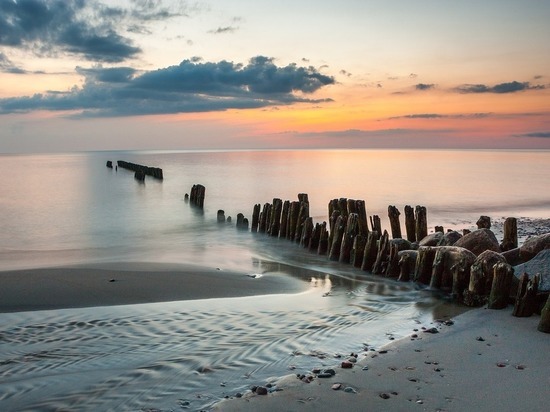Lithuania will not be able to crush the Kaliningrad region: saves the sea
[ad_1]

“Local entrepreneurs are used to change.”
This week disturbing news came from Kaliningrad – the region has exhausted quotas for the supply of a number of goods by rail through Lithuania. However, there are no reasons for concern, according to experts. “MK” learned more about the economic situation in the region.
In the Kaliningrad region, the logistics of delivering a number of goods may be changed. For example, construction materials, which, due to quotas, cannot be imported into the region by rail. The quotas for other important goods, such as glass containers, are coming to an end. Therefore, the authorities of the region are focusing on shipping transport, capable of transporting almost any type of cargo.
“Of course, it’s unpleasant that another supply route is being closed and everything now needs to be delivered by sea,” says Georgy Dykhanov, business analyst, head of the regional branch of Delovaya Rossiya, “But this is not a disaster, because during the time that sanctions were announced, we have significantly increased the number of ferries and now we have a total of 16 ships: several ferries, container ships, bulk cargo ships and so on. This is how we solved the problem of cement supplies, so we cannot say that there is a shortage of building materials. On the other hand, construction volumes fell due to economic reasons. Due to market uncertainty. And we carry – we carry, only by sea. Yes, it is more expensive, but our whole country is now looking for new logistics routes. This is the new reality.”
– Which product from the sanctions do you consider the most important for the region?
— Cement and metal. Not a single construction site and not a single object can do without metal structures. But we have been supplying metal only by sea for a long time. Well, cement – enterprises producing building materials suffered: foam blocks, partitions, panels … Many of them closed because production became unprofitable. If the region can somehow get wood on its own, then we do not produce metal and cement.
– And what about mineral fertilizers, soda, glass containers?
— We do not produce glass and are unlikely to. A glass factory is a very large-scale and serious production and is unlikely to be profitable in Kaliningrad, fertilizers are also imported. Many private companies have realized the benefits of cabotage and are thinking about launching more ships on the line. Fertilizers are easy to transport by sea, there are large volumes.
– How much can the purchase price increase as a result?
Maybe 20%, maybe 50%. Everyone is now rebuilding their business models, changing the product line, narrowing the range. The business is being consolidated. This is not the first time that the situation in the Kaliningrad region has changed, we have been influenced by various factors at different times, including the law on the special economic zone, so many enterprises are already vaccinated to adjust and change their business models. At the same time, we have a diversified economy, many different industries and business areas, but with little added value. In the production chain, the lack of one component or the unprofitability of its transportation from big Russia makes it necessary to rebuild the model, but it cannot be said that some industries cease to exist. Therefore, our enterprises and entrepreneurs are used to changes.
— Subsidies from the state rescue the enterprises?
– Of course they do. In this regard, the state is trying to help.
[ad_2]
Source link






